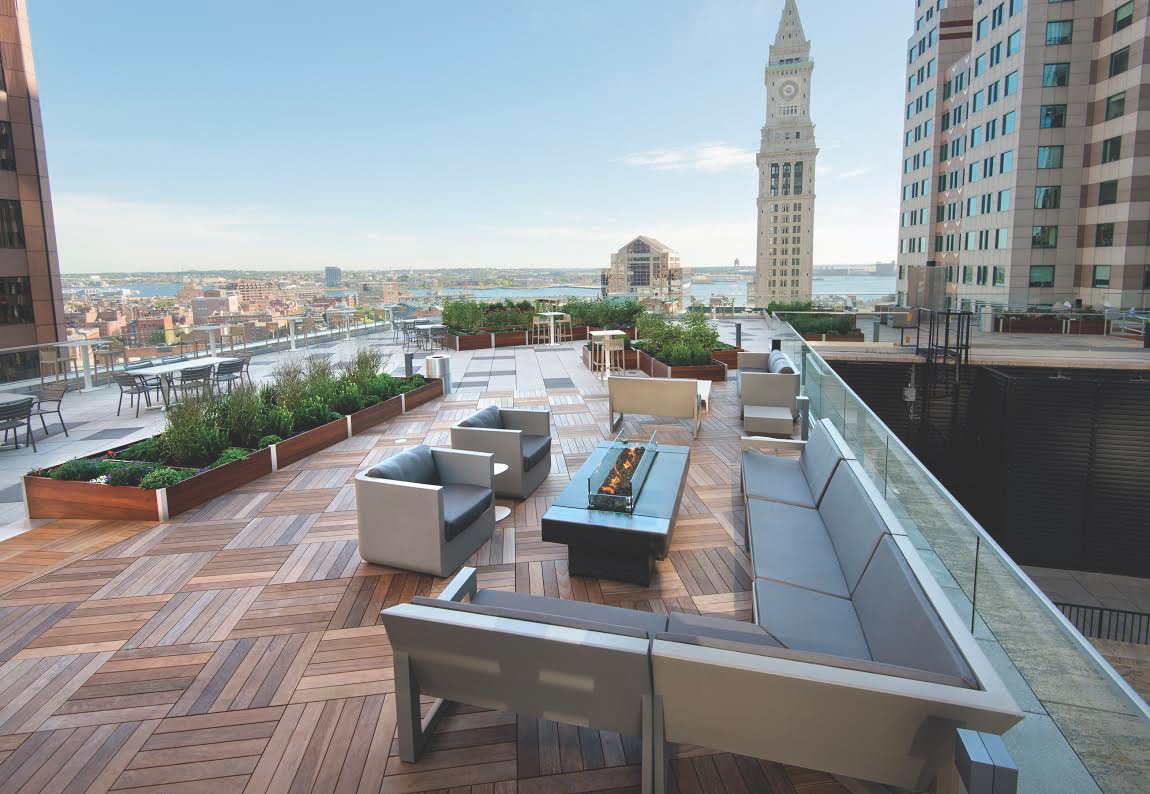
DeepStream’s planter-within- a-planter design keeps plants from overheating. Photo courtesy of Cushman & Wakefield
From permeable pavers made from 100% recycled materials to an innovative leader in reclaimed wood, these companies are doing recycling right.
Recycling is one of the best ways to help the environment and economy simultaneously, but it’s overlooked by too many as tedious and unnecessary. But of all the plastic that’s ever been made, only roughly 9% has likely been recycled, according to a 2018 report by Great Britain’s Royal Statistical Society (RSS). The RSS named it their statistic of the year.
On top of that, recent investigations in multiple cities across the country have found that even recyclables that have been properly disposed of may not be getting recycled. In Chicago, some recycling bins have been marked “contaminated” and hauled off to landfills when not contaminated at all.
But even though recycling worldwide has a ways to go, many green companies are paving the road to a more sustainable future. Here are 11 green companies working hard to change the way their industries perceive waste.
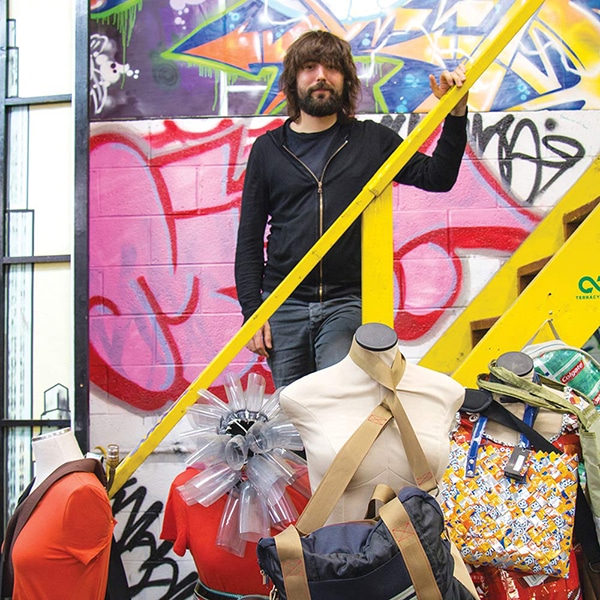
TerraCycle keeps hard-to-recycle items out of landfills and turns trash into treasure. Even the company’s New Jersey office is made of reused and recycled materials [Photo: Dean Innocenzi]
1. TerraCycle Programs Are Helping to Eliminate Landfill Waste
While growing plants in college, Tom Szaky discovered that worm poop could work as a natural recycler to improve and encourage successful plant growth. That was the beginning of TerraCycle, a recycling company that focuses on decreasing the amount of hard-to-recycle items in landfills. As one of the top leaders in the recycling industry, TerraCycle offers a series of free and paid recycling programs around the world to help cities and industries cut back on waste. The green company also has a team of scientists who work to create innovative recycling solutions, one being the world’s first pen product made from previously used pens. Companies such as Colgate, PepsiCo, and Brita all utilize TerraCycle to make their own companies greener.
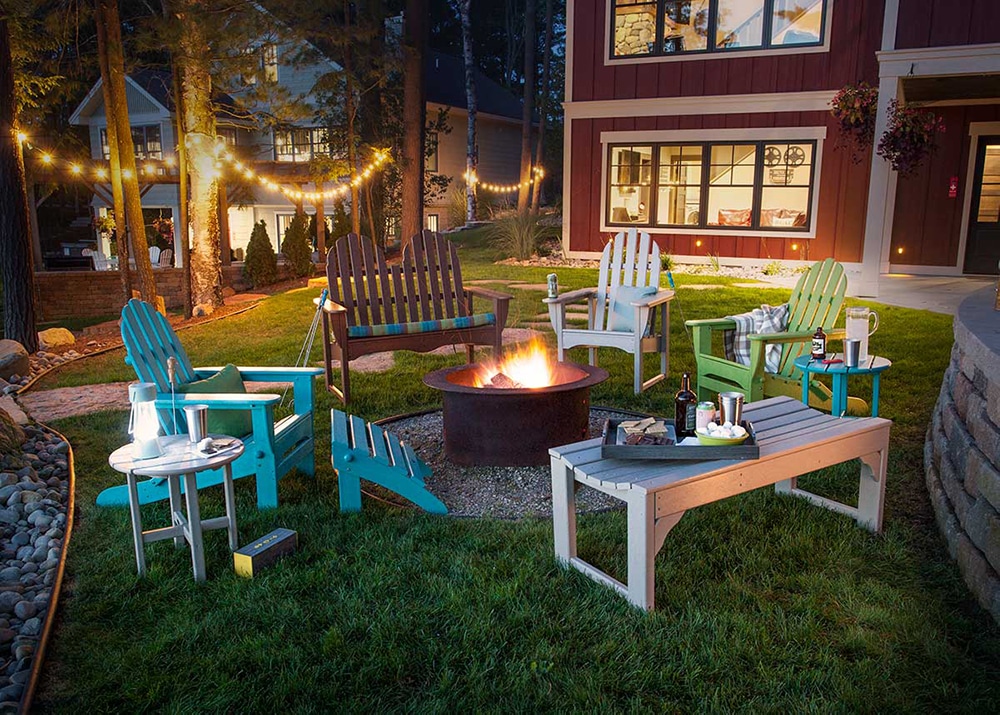
Milk jugs and plastic lumber get attractive, functional second lives with POLYWOOD’s outdoor furniture. [Photo: Courtesy of POLYWOOD]
2. POLYWOOD Leads in Recycled Outdoor Furniture
POLYWOOD is no stranger to recycling. Spurred on by the environmental movement of the 1980s, the outdoor furnishing company began implementing recycling practices in the ’90s and hasn’t looked back. Their furniture is made of recycled plastic lumber, as opposed to wood and particle board, and is built to be enjoyed during every season of the year. POLYWOOD recycles 400,000 milk jugs per day on average.
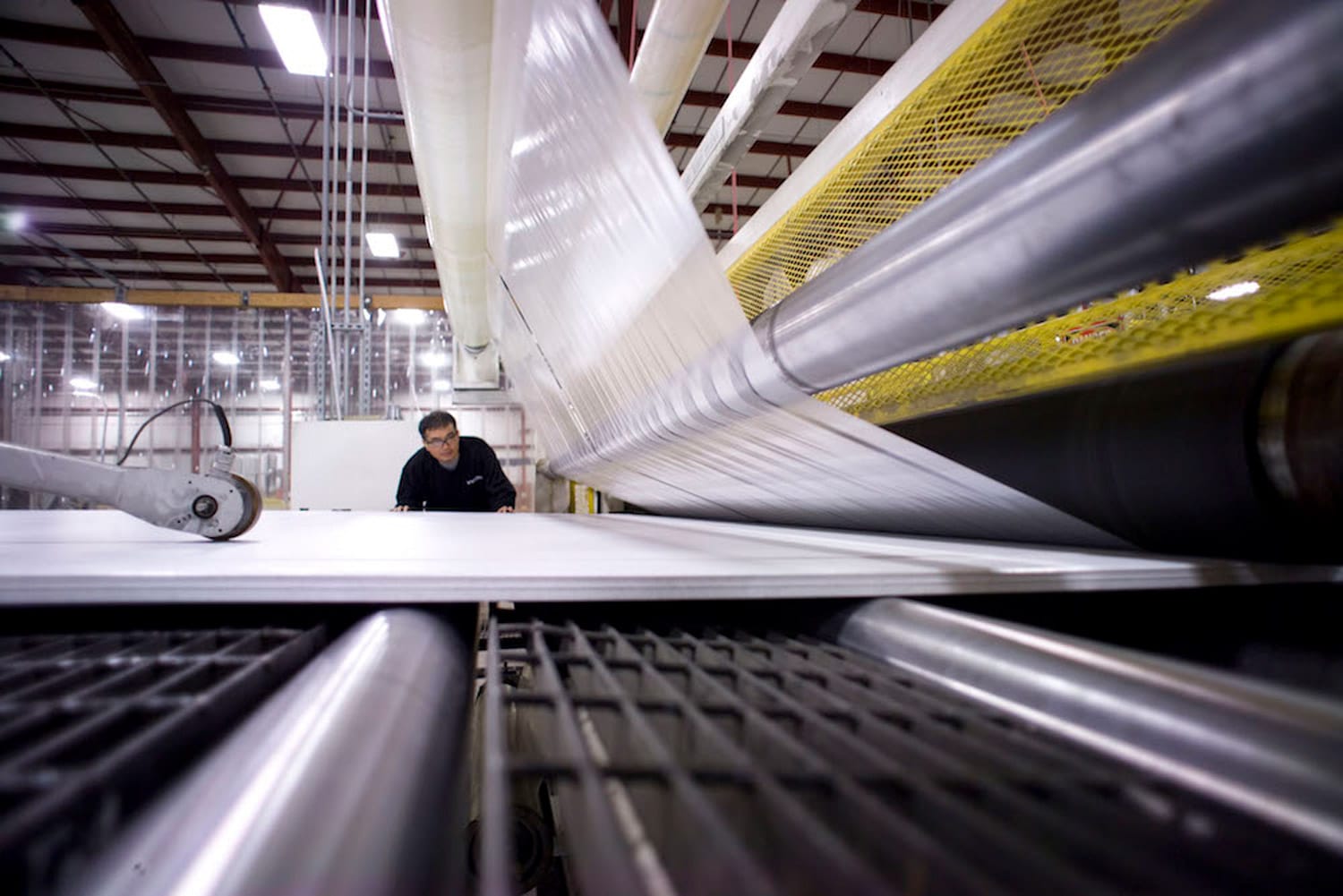
Scranton Products recycles old partitions into new products. [Photo: Courtesy of Scranton Products]
3. Scranton Products Offer Recycled and Recyclable Products
As an industry leader in plastic bathroom partitions and lockers, Scranton Products knows a lot about waste—mostly, about expelling it. The company offers customers the option of high-density polyethylene (HDPE) materials for their products, which help to reduce environmental impact and improve indoor air quality over time. All HDPE products are made from recycled material and are 100% recyclable.
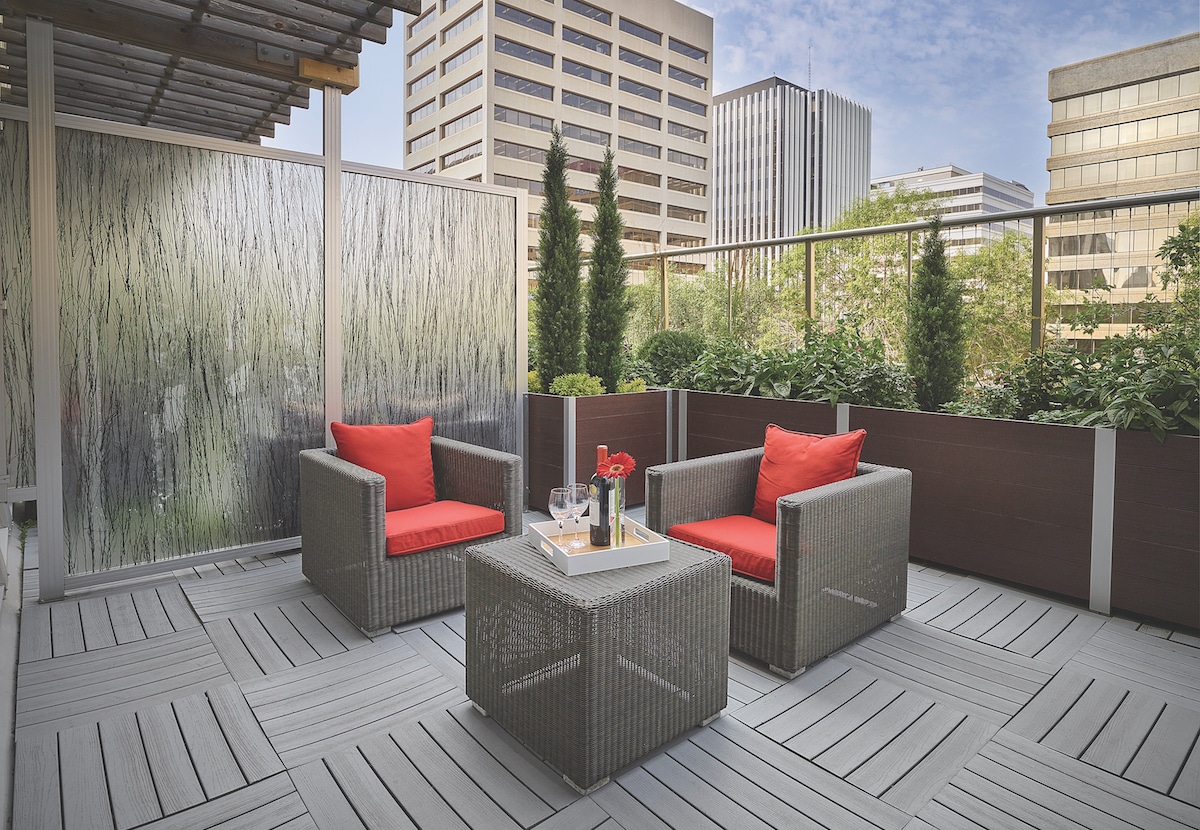
Planter-system providers DeepStream Designs use recycled materials wherever possible. [Photo: Matrix Hotel Edmonton]
4. Lack of Sustainable Planters Inspired DeepStream Designs
DeepStream Designs was born one day when Tom and Sheila Boyce were sitting at a cafe surrounded by rotting wooden planters. They were looking for sustainable planters for their own condominium project at the time and came to realize that there just weren’t that many options out there—so Tom created a new option. DeepStream Designs’ Audubon and Mariner modular wood planter systems are made from recycled plastic milk bottles and can be paired with recycling and trash bins, wall systems, and fixtures for hotels and restaurants. In 2017, their products created from this material made up 62% of the company’s sales. In addition to recycling waste, they’re also giving back to the planet in another form: for each product the green company produces, a tree is planted in honor of their sustainable customers through nonprofit Trees for the Future.
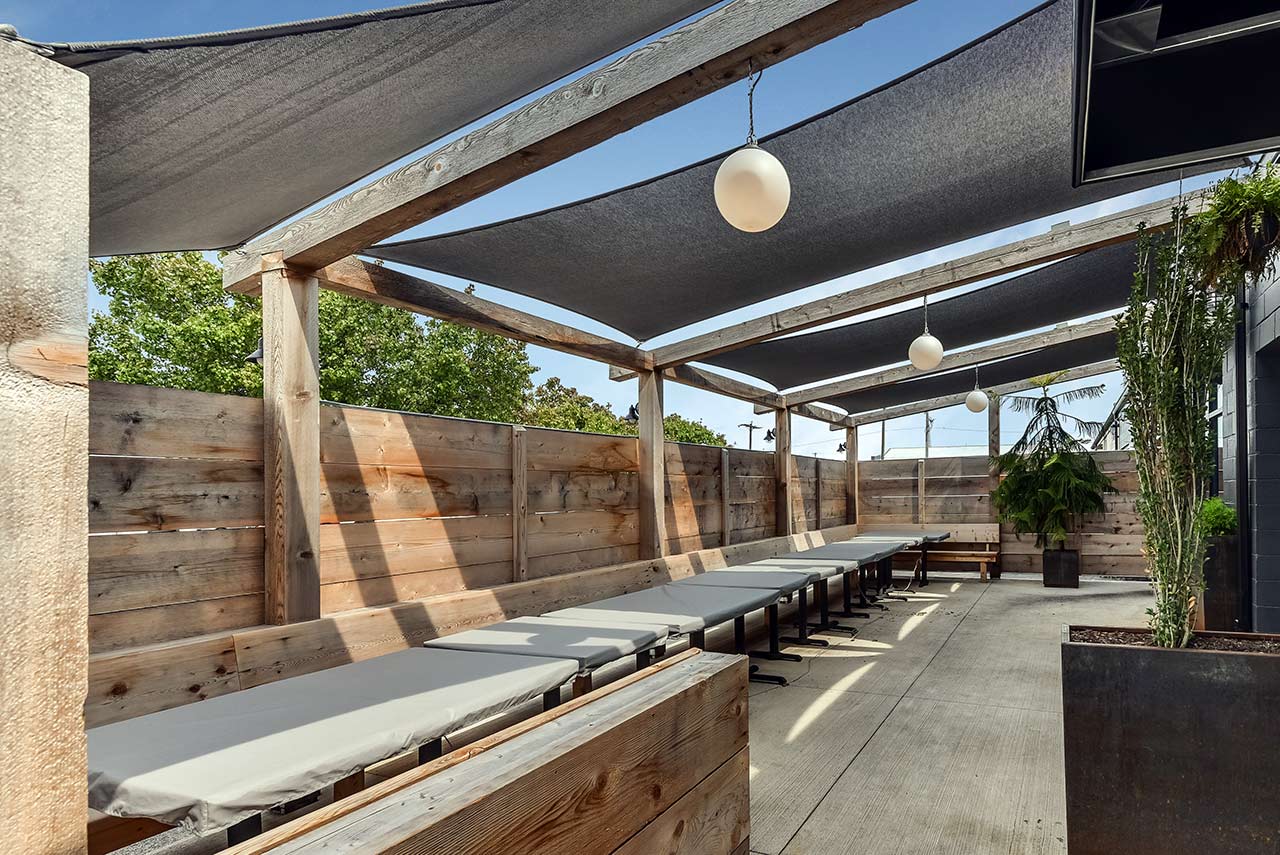
Sunbrella Renaissance fabrics combine up to 50% post-industrial recycled Sunbrella fiber with virgin Sunbrella fiber. [Photo: Courtesy of Sunbrella]
5. Sunbrella Shades Sustainably
For days when the sun shines too brightly or a sunny forecast turns grim, Sunbrella offers a sustainable solution that provides shade and protection. The company repurposes leftover fibers and yarns from unused or unwanted fabrics in one of their most popular products, the Sunbrella Renaissance. It uses up to 50% recycled Sunbrella materials, and it’s crafted into a vintage-like fabric, which the sustainable company promises will offer charm, softness, and high performance. Sunbrella fabrics are honored with a multitude of environmental certifications, like the GREENGUARD Gold certification and OEKO-TEX certification, and are zero landfill.
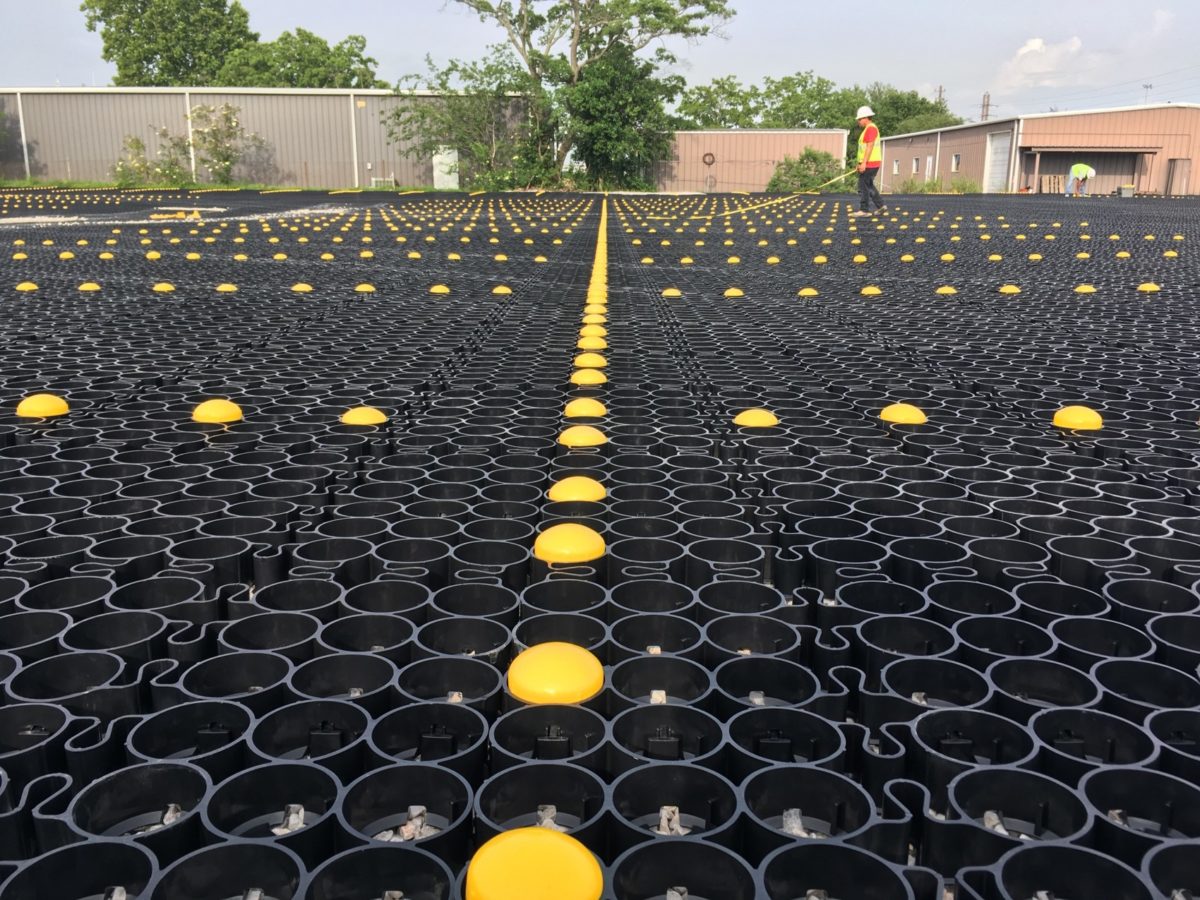
TRUEGRID permeable pavers create 100% permeable surfaces and detain water. [Photo: Courtesy of TRUEGRID]
6. Lego-like TRUEGRID Pavers Focus on a Better Environment
Barry Stiles, CEO of TRUEGRID, has likened his permeable pavers to real-world legos, and the green company is using them to build a more sustainable society. After both Stiles and his son were diagnosed with different forms of cancer, he wanted to make the environment a safer and healthier place for kids. To achieve that, his company has committed to using 100% recycled materials—often water and milk jugs or detergent and shampoo bottles. The materials are also entirely HDPE, and when shipping out their products, TRUEGRID utilizes as little packaging as possible.
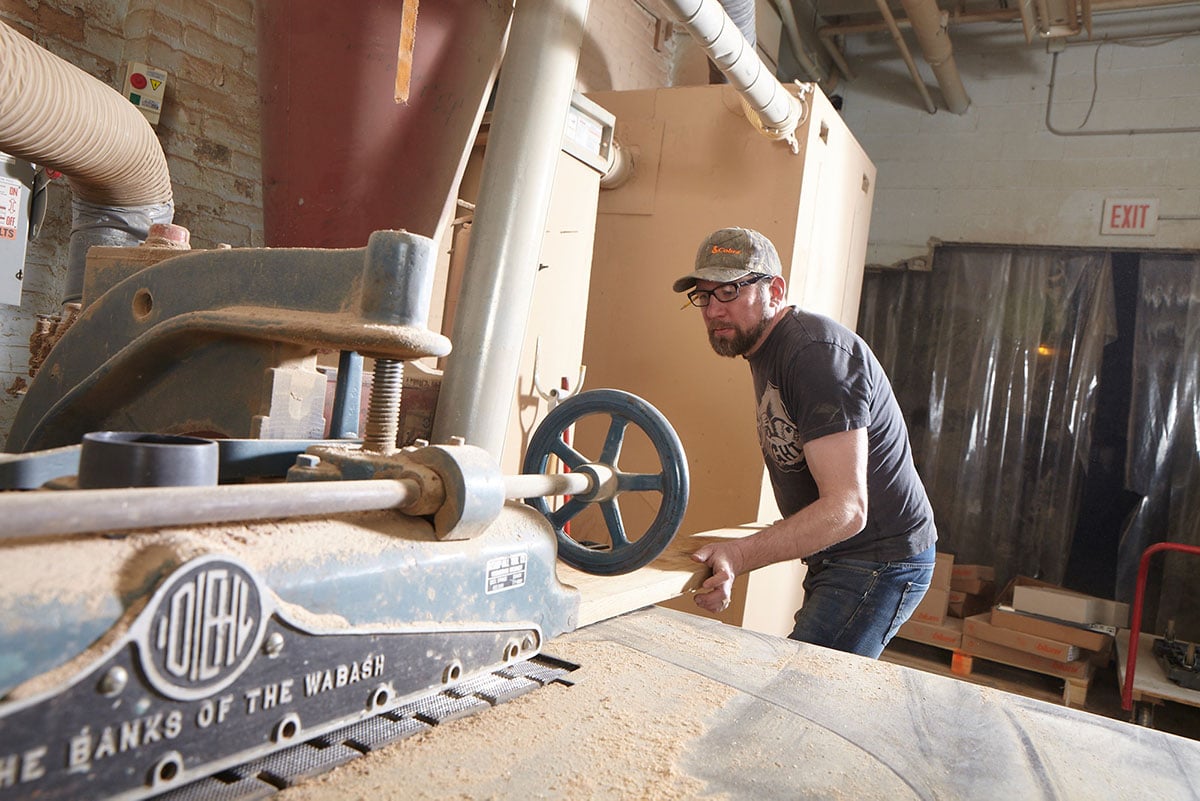
Jaime Covert, who uses reclaimed wood in his Coterie studio, had extensive training in Amish furniture-making and several apprenticeships in his youth. [Photo: Courtesy of Coterie]
7. Coterie Offers Sustainable Custom Furniture
To Jaime and Carrie Covert—the husband and wife duo who own Chicago-based Coterie—reclaimed wood is the best choice for custom furniture. While sometimes expensive, reclaimed wood is both sustainable and artistic. All the pieces the duo has worked on that included reclaimed wood ended up unique in their own right. “When you’re cutting an old beam in a house that’s been there for 110 years, which used to be a 300-year-old tree, you’re getting textures and colors that are unexpected,” Jaime says.
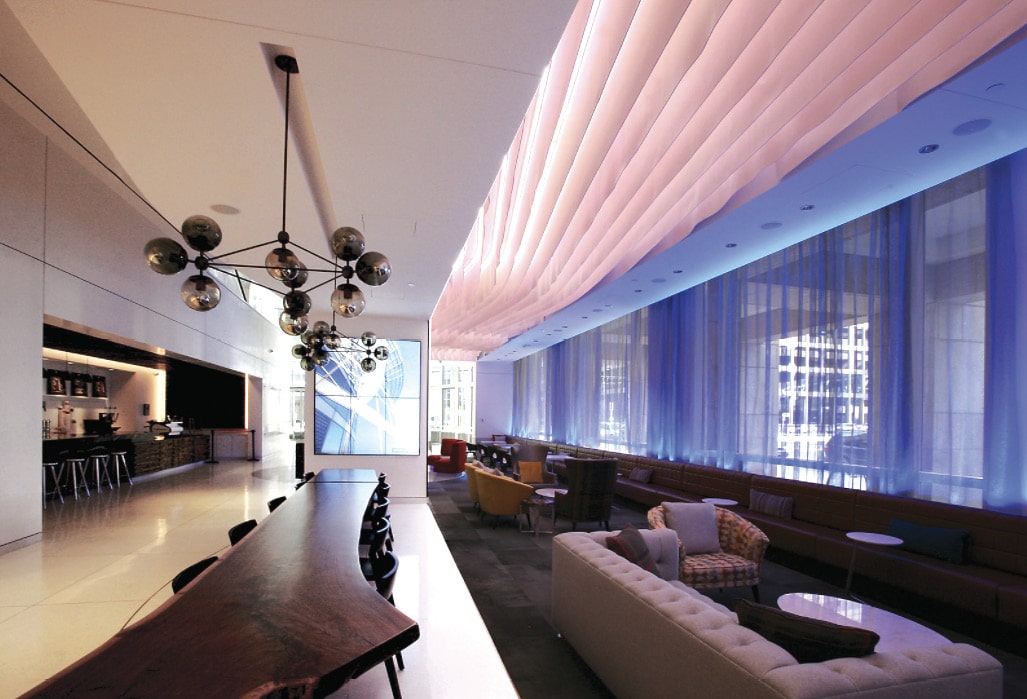
FabriTRAK offers acoustical systems that are 100% recyclable and built from sustainable materials [Photo: Courtesy of FabriTRAK]
8. FabriTRAK Is Redefining “Green” in the Acoustics Industry
When imagining acoustical solutions, “green” may not be the first word to come to mind—acoustical systems provider FabriTRAK has even said it themselves. But with two green products, EcoTACK and GeoTrak, the company hopes to change that preconception. Both products are 100% recyclable and made from environmentally friendly materials. In addition, neither product contains formaldehyde, a probable human carcinogen commonly used in household products.
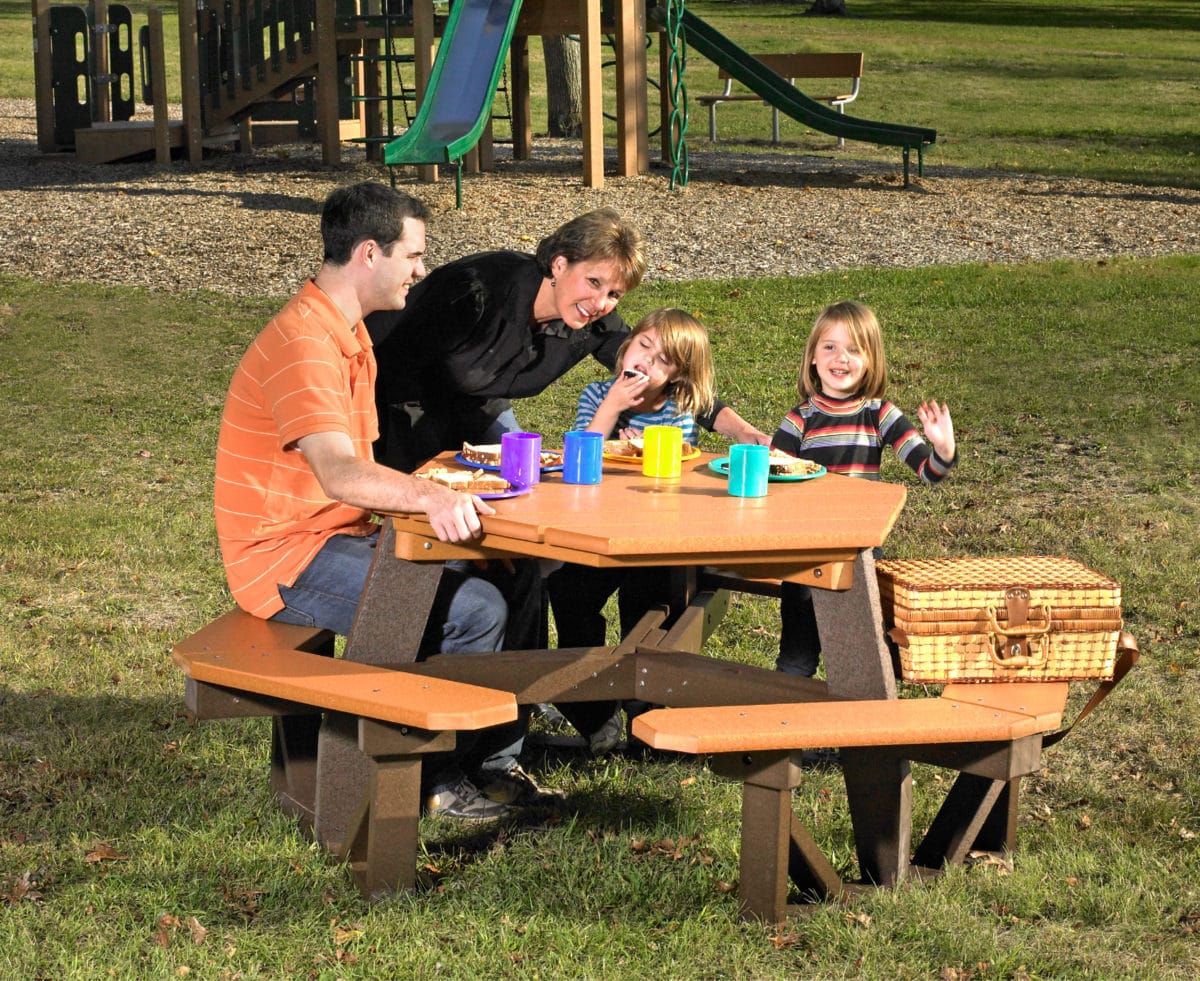
Plastic from more than 1,300 milk jugs is used to make one Bright Idea Shops hexagonal picnic table. Photo courtesy of Bright Idea Shops
9. Recycling Comes Easy to Bright Idea Shops
For Bright Idea Shops’ founder Alan Robbins, the place for recycled plastic wood is in parks. The company’s green designs typically manifest in picnic tables, benches, and trash containers. The impact Robbins’ work has on the planet is best explained by the man himself: “Our hexagonal picnic table weighs 212 pounds. It comes in various colors, and it’s well crafted with a nice design that’s easy to assemble and add an umbrella. That’s 212 pounds, and there are 6.4 milk jugs in a pound of plastic. Do the multiplication and that’s 1,356 milk jugs to make that one product. That’s 1,300 milk jugs that were going to a landfill that now go to make this product. And that’s just one picnic table.”
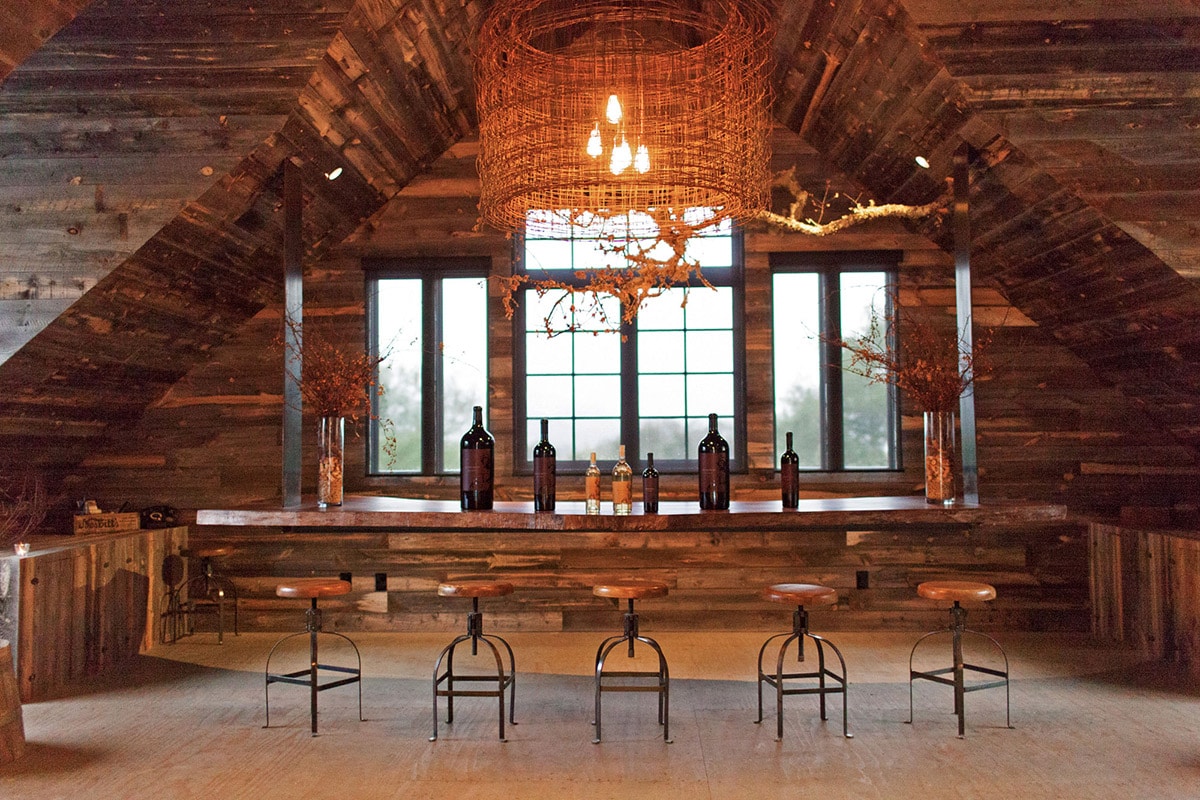
Centennial Woods helps transform Wyoming’s weathered wooden snow fences into stunning interiors. Photo courtesy of The Centennial Woods
10. Centennial Woods Reclaims Their Own Wood
As one of the largest providers of reclaimed wood in the world, Centennial Woods knows a lot about recycling. The company offers a variety of services from artistic home decor to rustic interior and exteriors, but no matter the project, the wood all comes from the same place: massive snow fences in Wyoming. Centennial Woods build these fences that line Wyoming’s highways every year, keeping roads safe in the dead of winter. The harsh Wyoming winters actually improve their products by helping to produce weathered wood without the energy-consuming process of kiln drying. Using the wood from the weathered fences ensures their material is carbon negative and offers a never-ending supply of material.
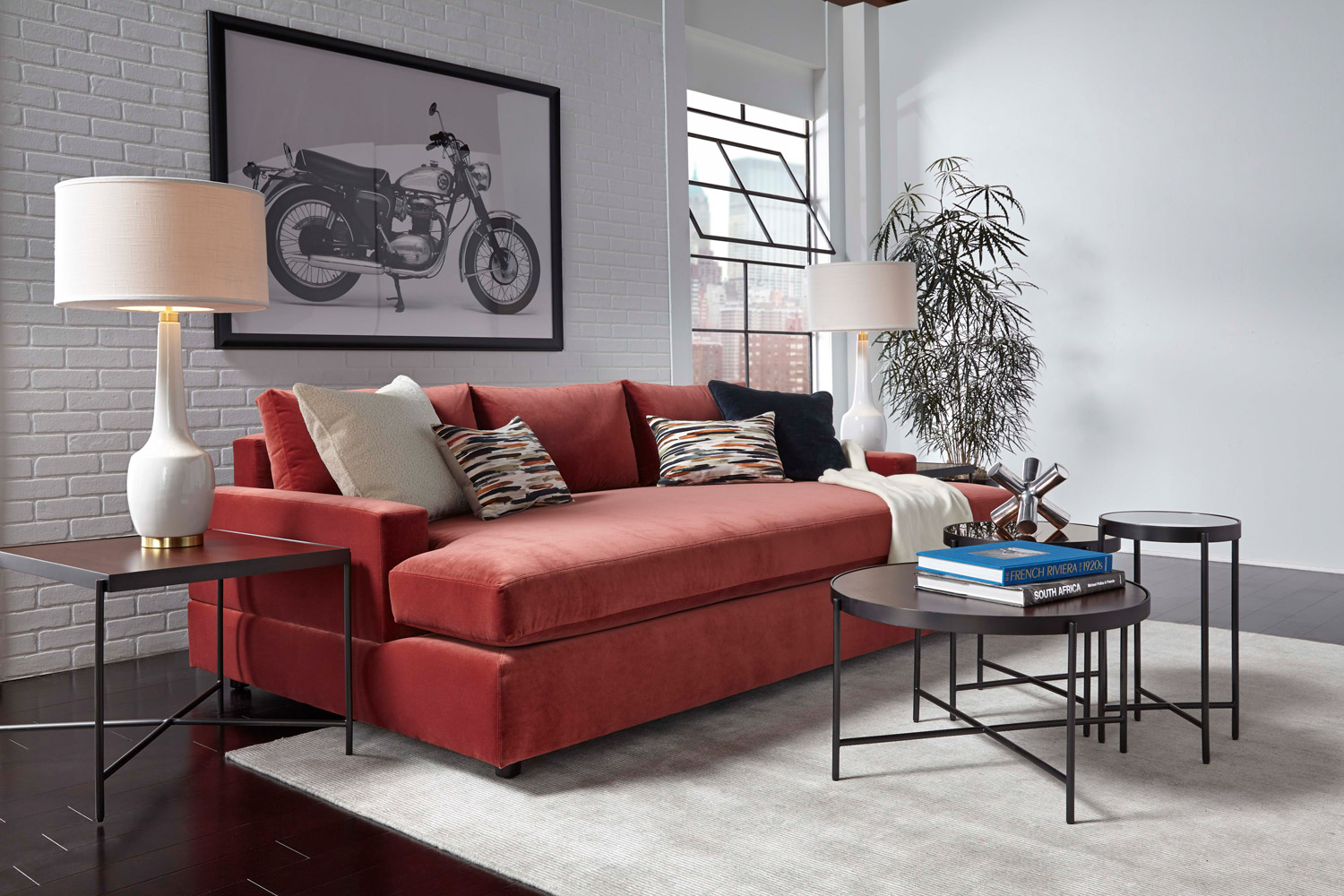
Mitchell Gold + Bob Williams continues to work with the Sustainable Furnishings Council to give customers better products. Photos courtesy of Mitchell Gold + Bob Williams
11. Mitchell Gold + Bob Williams Is Tired of Smog
When designer duo Bob Williams and Mitchell Gold settled down in South Carolina after leaving New York City, they soon found that smog and a lack of care for the environment was not unique to the big city. They discovered that their foam manufacturers were releasing ozone-damaging CFCs into the air and knew they had to make a change. Since then, their company, Mitchell Gold + Bob Williams, has worked on reducing its footprint by focusing in on recycling. Just by recycling packaging materials and upcycling leather and fabric scraps, the company reduced their annual landfill waste by over 200 pounds.
